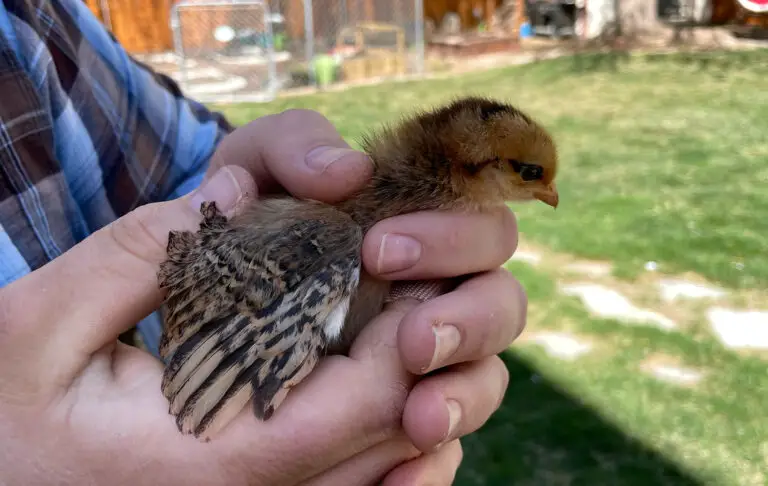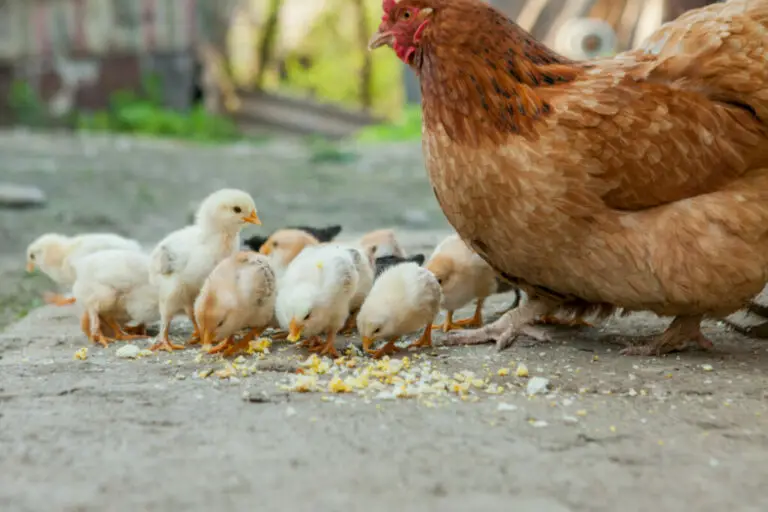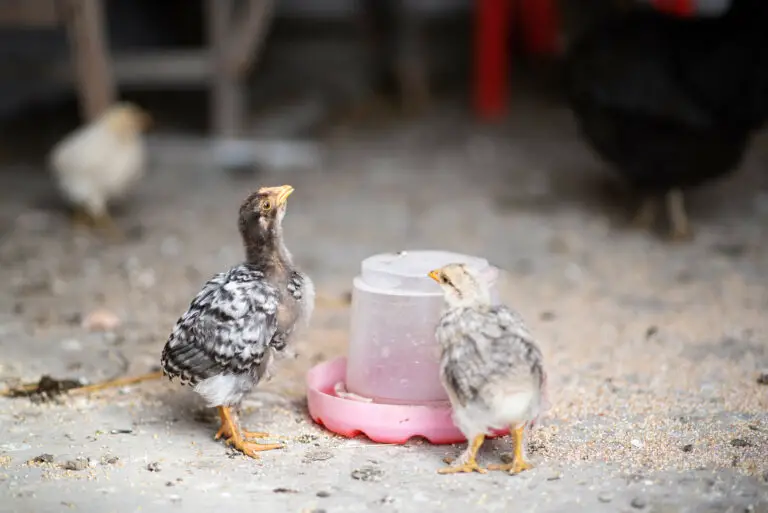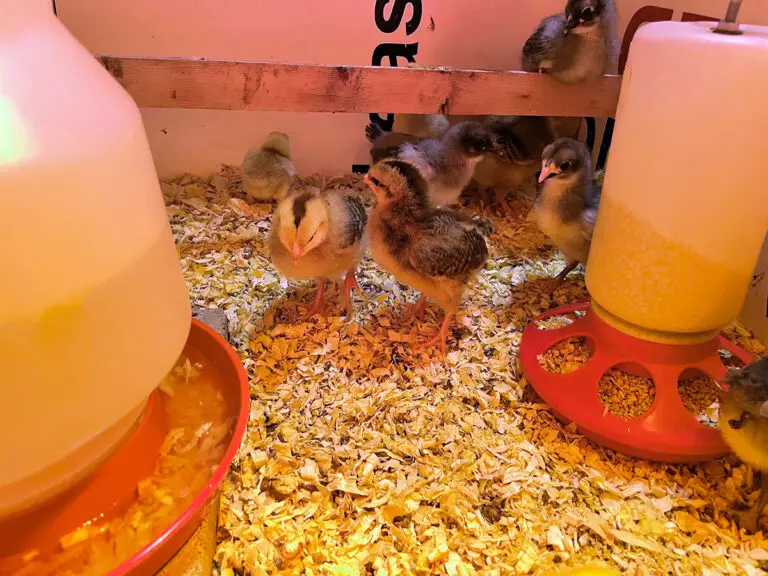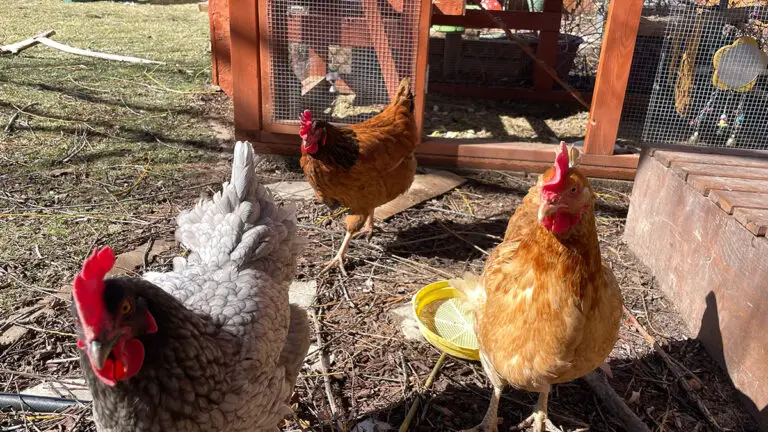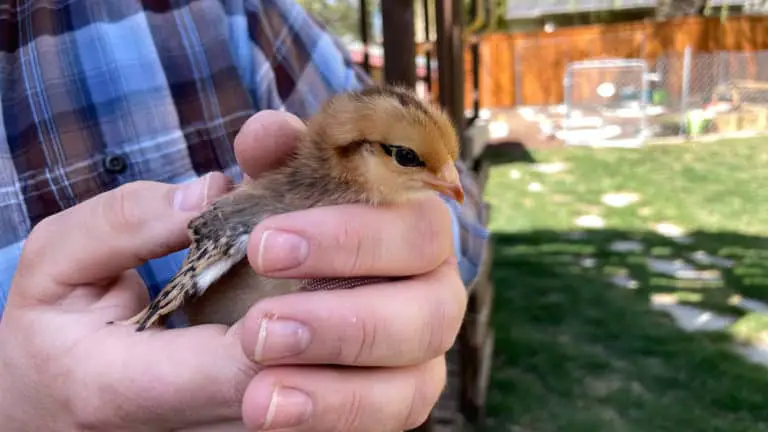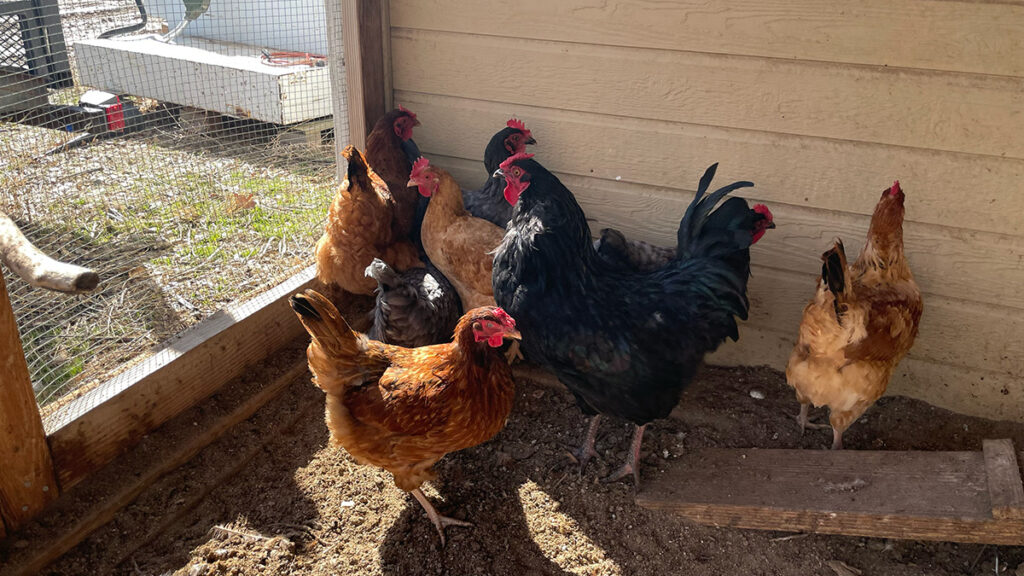
Many people raise chickens because of the eggs and meat they provide. However, if you are a beginner at raising chickens, how many should you get?
Those who are new to raising chickens should start with 3-5 chickens. Those new to chickens should get no fewer than 3 chickens because that’s the minimum you need for healthy socialization. Only get 5 or more chickens if you have a big family to feed or if you really want to make sure you get at least 3 hens.
There is a lot to know about chickens and the perfect number to get when you first start raising them. Keep reading to learn more.
How Many Chickens Should a Beginner Get?
If you are a beginner, you should usually plan to get 3-5 chickens. That’s my recommendation from experience, but it turns out that the Farmers Almanac agrees.
That’s because you need at least 3 chickens because they’re social animals and need at least 3 chickens in a flock for healthy socialization. But if this is your first time, I suggest getting no more than 5 chickens at a time because as a beginner, there’s a lot to learn and it can get difficult to care for a lot more chickens.
The more chickens you have, the more committed to taking care of them you have to be. It can be hard to determine how much food you need to buy when you first start raising chickens. It can also be hard to maintain the cleanliness of the henhouse at first, especially if you have more than 5 chickens.
Another important consideration when buying chicks is that you always run the risk of getting roosters. In a lot of cities, you’re not allowed to have roosters, and even if you are I wouldn’t recommend having roosters as a beginner.
So if you want to make sure you get 3 hens, which is the suggested number for proper socialization, consider getting 4-5 chicks. There’s also a chance you could lose one of your chicks at some point, so consider getting enough so that you can still have 3 hens even if one ends up passing away.
What If You End Up With 4 Hens But Want 3?
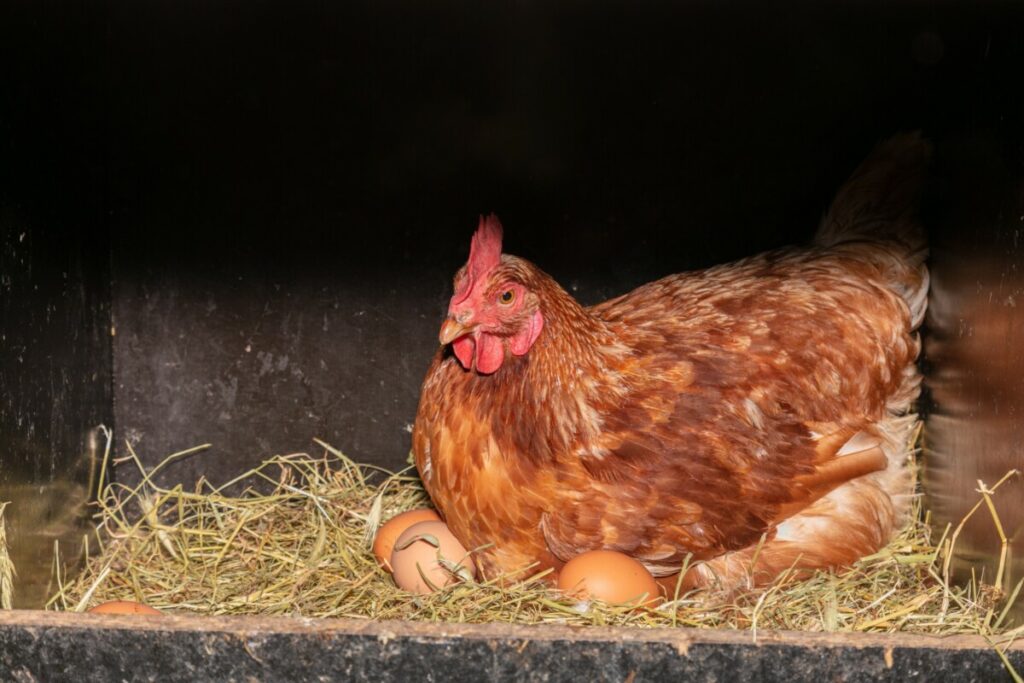
So you got 4 hens but only wanted 3. There is no need to worry, you have some options. The first option is to just keep it and have 4 hens. Keeping the hen would require a bit more work but would mean you wouldn’t have to go through the process of getting rid of it.
If you absolutely do not want 4 hens and only want 3, you can always sell (or re-home) it. It’s easy to do, especially with rising food costs and an increased interest in raising egg chickens. You can post an ad for your extra hen on Marketplace Facebook or just join a local Chicken Facebook Group (yes there are a ton of them) and post in there that you have a hen to sell.
Hens that are old enough to lay eggs are regularly selling for $20-$30 each right now in my area.
If you do not want to sell your chicken, you could also use it for meat. This can be difficult for some people, and you may not be able to stomach this option. If that’s the case, selling or just keeping your extra hen is the best option.
What To Do If You End Up With Only 2 Hens
Chickens have a big social life, and they need as many relationships as possible. Chickens will have relationships with themselves and with the other chickens they are with. So, if you only end up with 2 hens, each bird would only have 2 relationships, which is not considered enough for chickens to be properly socialized. They’ll probably survive, but your chickens won’t be as happy as they would be if there were 3 hens in the coop.
If you want your hens to be as happy as can be, you will need to get another hen. Consider buying a couple of chickens just in case something happens to one of them or one turns out to be a rooster.
You’ll want to do this as early as possible, while all of the chickens are still young. Adding a bird to a flock can lead to a lot of fighting. Like a lot of animals, chickens create a social hierarchy, and adding another chicken will disrupt that. So expose the new hen to the others, but be prepared to keep them in separate enclosures temporarily, but within view of each other.
If they take to each other right away, then I wouldn’t worry about keeping them separate.
Just know that chickens can get very lonely if they don’t get proper socialization. Having proper socialization in a flock is essential for chickens, so I highly suggest trying to get more hens if you only ended up with 2.
Another important factor when considering if you should just stick with 2 hens is if they will produce enough eggs to feed your family. Chickens typically lay 1 egg a day and none when they’re molting. If you have a bigger family, this may not be enough for you. This means that you are definitely going to want more than 2 hens unless you want to buy some of your eggs from the grocery store.
Are Roosters Good For Beginners?

Roosters can be difficult. They are a lot harder to take care of than hens. That’s why I don’t suggest keeping any roosters you end up with if you are a beginner to raising chickens. Roosters are known for being mean and can chase after and peck at you sometimes.
Roosters may scare children or adults when they approach the chicken coop. As a beginner, this is something that you may not want to deal with.
Another reason roosters are not suggested for beginners is that roosters will mate with hens. So the eggs you get may be fertile, which some people find offputting for eating.
Another reason roosters I don’t recommend roosters for beginners is that they are loud. They crow a lot, not just in the morning. If you keep any roosters, your family and neighbors may not be very happy with you. In a lot of towns and cities, it’s actually not permitted to keep roosters because of the sound.
For all of these reasons, having a rooster as a beginner can just be too much to handle and can be a huge hassle. If you end up with a rooster, consider selling it. You can always get another rooster when you have more experience raising chickens. And if you do want to hatch your own chicks, just join a local chicken Facebook group. You’ll find that you can easily buy fertilized eggs from other people who do keep roosters and hens.

